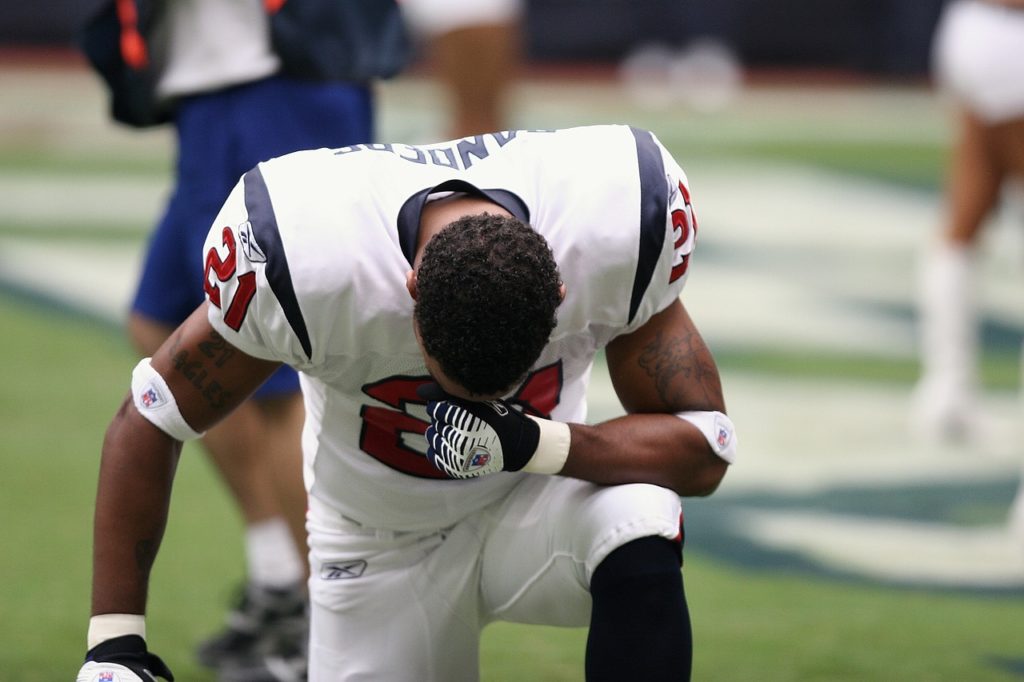News
Study of former NFL players suggests physical symptoms after concussion may predict depression

A history of repeated concussions has long been tied to an increased risk of developing depression, but a new study suggests the relationship may not be so simple.
Instead, researchers from the Vanderbilt Sports Concussions Center and Medical College of Wisconsin (MCW) say physical symptoms after concussions may be the key indicator of whether a person is likely to develop depression after a brain injury.
“While it often gets portrayed that sustaining sport-related concussions while playing contact sports at any level will increase the risk of future mental health problems in former athletes, clinicians who are in the field treating these individuals know that it is a much more complex process and the source of psychiatric symptoms can be multifaceted,” explained study authors Scott L. Zuckerman from Vanderbilt and Benjamin Brett from MCW to PsyPost.
“In other words, not all former athletes who sustained a sport-related concussion (or multiple) will inevitably develop mood symptoms, such as depression, later in life and other factors likely play a role in this process. In that light, we wanted to further investigate the relationship between the number of self-reported concussions and depression symptoms in former NFL athletes, examining additional factors (i.e., somatic or physical symptoms) that may have an influence or moderate this relationship.”
For the study, the researchers surveyed 43 former NFL players to measure clinical depression and symptomatology – such as dizziness, chronic pain, and shortness of breath.
The researchers also collected a detailed record of every participants’ head injury and concussion history.
According to the report, the athletes reported an average of 8.7 sports-related concussions. However, not all players experienced the same concussion risk. Those who experienced the highest rate or severity of somatic symptoms were significantly more likely to experience depression symptoms.
Notably, those with the highest number of concussions were also more likely to experience increased somatic symptoms.
“We hope the average person takes away that the discussion of whether participation in contact sports can lead to later-life mental health and neurocognitive problems is complex, with many more questions than answers,” Zuckerman and Brett said.
“As our paper showed, the association between concussion history and depression, which is often portrayed as a causal relationship, was influenced by additional factors. In reality, the amount of bodily or somatic complaints had a larger effect than the number of concussions sustained by former NFL athletes.”
“Further, the amount of bodily or somatic symptoms endorsed moderated the relationship between sport-related concussion history (number of concussions) and depressive symptoms. If you had minimal to no bodily/physical symptoms, there was virtually no relationship between the number concussions that an individual sustained while playing contact sports and depression symptoms later in life. The more bodily/physical symptoms were endorsed, the stronger the association between self-reported concussion history and depression symptoms.”



